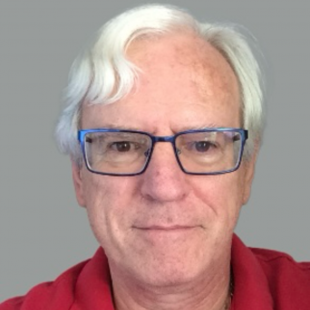BSc Electrical Engineering, 1971
Why did you choose to study at the University of Edinburgh?
I was born and grew up in Edinburgh, and wanted to study physics or engineering. It was a choice between the University of Edinburgh, Heriot-Watt, or the universities of Glasgow or Strathclyde. Edinburgh was first choice for its reputation in physics and engineering.
What path has your career taken since graduation?
I did an apprenticeship with the BBC, before joining Post Office Telecom on graduation in 1971. I was then awarded an opportunity to do an MSc at Aston University, before being recruited by Northern Electric and moving to Ottawa, Canada in 1978. Worked in various engineering and management roles until a downturn in the Ottawa telecom sector in the 1980s (remember RIM, Blackberry and Mitel?), when I moved to Calgary and joined Alberta Government Tel (AGT), now called TELUS, until retiring in 2005.
What is your current role?
I'm retired, but still doing volunteer work, providing telecom consulting services and website management to local organisations.
What experiences do you feel helped you get to your current position?
I brought my skills and experience to organisations that knew they should be using telecom in their business, but knew nothing about the internet or website services.
How have you used the skills and knowledge developed during your degree in your career?
My degree in 1971 focused on engineering, but as I progressed, I learned that management of projects and people were as important as technical knowledge.
Did you do any work experience while you were a student at the University of Edinburgh, and if so how did it help you in determining the field you wanted to pursue professionally?
I did a summer internship which helped me learn how my engineering skills were one contributor to a company’s success, but people and customers were as important.
Can you tell us of any personal or professional achievements in your career so far?
Learning that engineering knowledge was important but not the only skill that made a company or organisation successful.
If you could offer some advice to prospective and current students what would it be?
Pay attention to how your engineering skills and knowledge fit into the overall aims of the organisation and its customer requirements.



